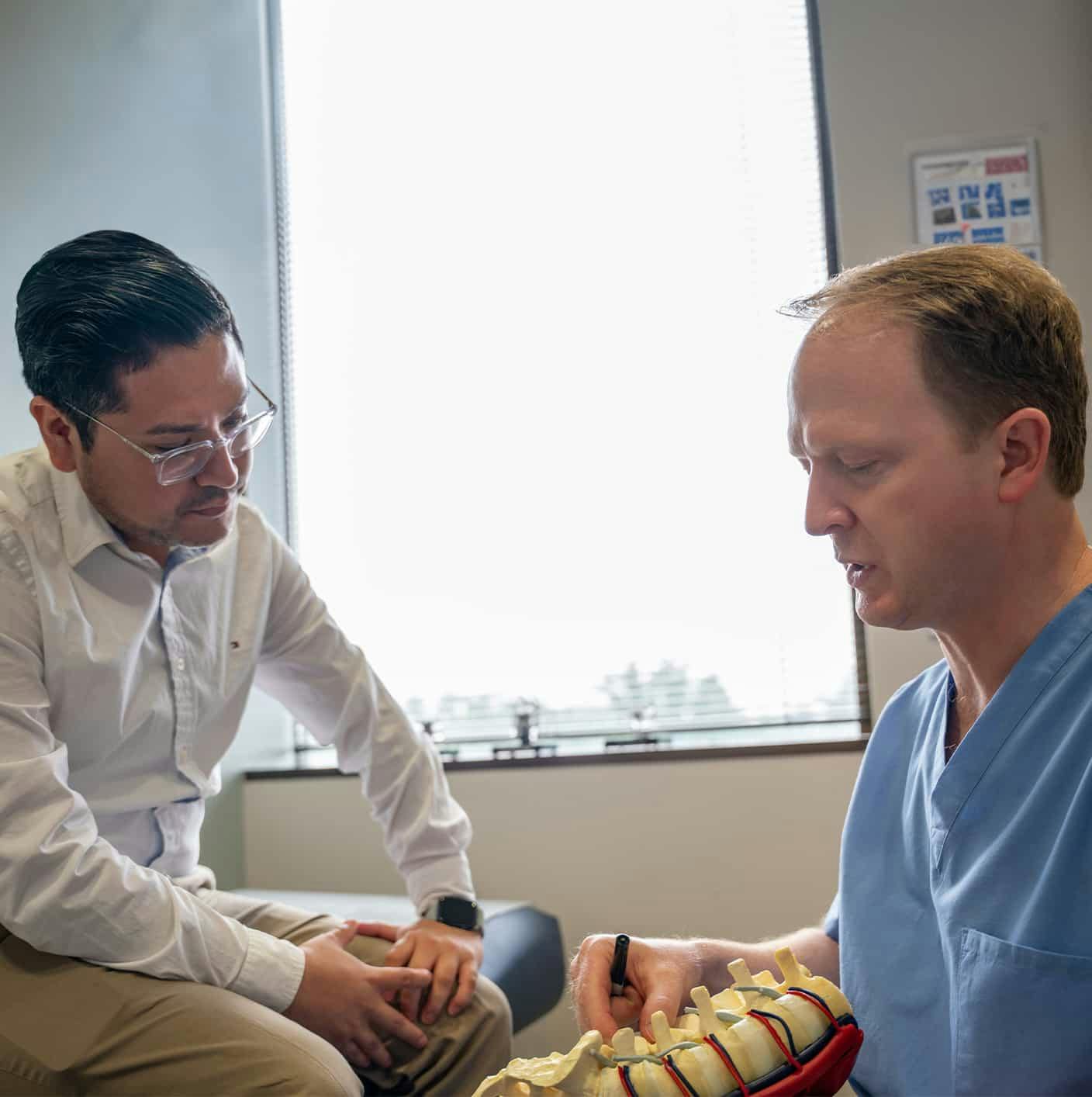Spinal tumors can significantly impact a person's health and quality of life due to effects on the spinal cord, nerve roots, and surrounding structures. While a complex medical concern, detection and treatment methods exist to manage these effects and improve overall well-being.

Why Choose Virginia Neurosurgeons?
Virginia Neurosurgeons stands at the forefront of neurosurgical care, particularly in the treatment of spinal tumors. Established in Arlington in 2001, our practice has evolved into the largest independent neurosurgical group in Northern Virginia. Our esteemed surgeons are board-certified by the American Board of Neurological Surgeons and were educated and trained at prestigious institutions which brings extensive specialty training to the table. What sets us apart is our expertise and comprehensive evidence-based approach, integrating neurologic and biomechanical factors. At the core of our practice is a commitment to ethical, honest, and compassionate care. By engaging our services, patients benefit from our expertise, avoiding further neurological dysfunction and pain and progressing towards improved overall well-being.




